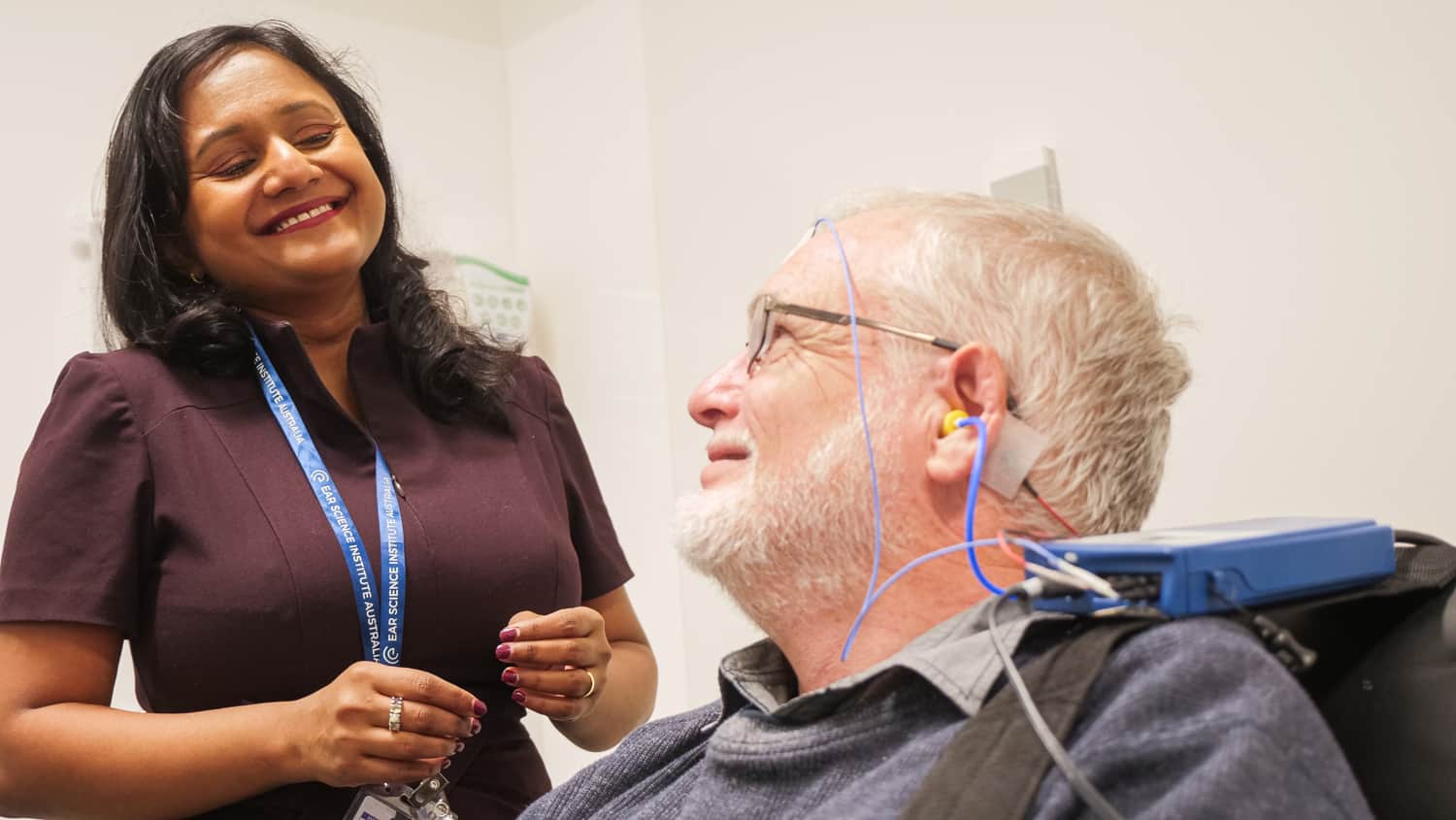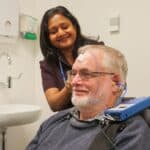One simple test to find out if you are at risk of dementia
As part of Dementia Awareness, Perth based Ear Science Institute Australia is doubling down on our effort to stop dementia in its tracks with our HearCog Trial taking the reduction of dementia risk to a new level.
In a world-first, the HearCog clinical trial with older adults at risk of dementia, conducted by Ear Science Institute Australia, is at its half waypoint. Early indications are showing that 20% of respondents already have significant undiagnosed cognitive impairment and undiagnosed disabling hearing loss requiring amplification; both of which are risk factors for dementia. This is very concerning; West Australians are still ignoring the signs of hearing loss which contributes to cognitive decline.
Ear Science’s Researcher, Dr Dona Jayakody is part of Perth based research team that is contributing to the increasing body of evidence on the link between hearing loss and dementia. “We may not be able to stop the train – that is dementia, and make it come to a complete halt, but what we’re hopeful of is slowing the train down enough to manage the symptoms,” said Dr Dona Jayakody.
Our trial participants are reporting some really positive comments, John is a participant in the HearCog trial “Before I joined the trial, my wife was getting really annoyed with how loud I turned up the TV and I felt that I was missing out on the Cycling Club conversation when we all stopped for coffee” he said. “My hearing aids mean I now understand the news, I enjoy a public talk and find myself joining in more at Cycling Club, I am really happy”
Johns wife, Anna added “His hearing was not perfect, so I just said to him he needs to do something about it. That first visit to Lions Hearing Clinic has made a big difference to our lives”
We are now making big strides into translating this research into new treatments for our clients, to reduce the risk of dementia in our rapidly ageing population.
“Can you imagine a hearing test that also detects early risk signs of dementia? Or a hearing device that tells the user to practice wearing it, so their brain can get used to the new amplified sound?” said Dr Mel Ferguson, Head of Brain & Hearing Group at Ear Science Institute Australia. “These ground-breaking treatments for hearing loss are what we all working towards.”
“Hearing loss affects all aspects of daily life. it’s invisible and people often just ignore it, and choose to just ‘live’ with it.” Said Sandra Bellekom, CEO at Ear Science Institute Australia. “We are committed to making quality hearing care, that is led by science, accessible to as many West Australians as we can”.






